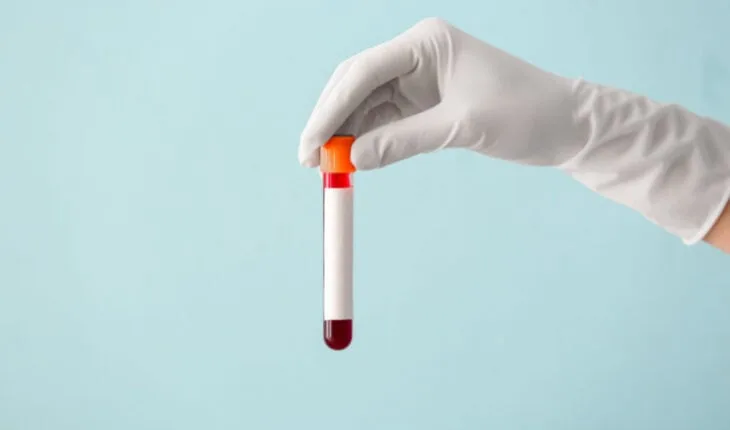Blood tests for diagnosing dementia would be much more acceptable to the public than current tests offered, according to a new survey.
The news comes as Alzheimer’s Research UK and Alzheimer’s Society begin a joint research venture to bring a blood test to the NHS in five years.
The nationally representative survey found that over half (54%) of UK adults would be reluctant to undergo a lumbar puncture – also known as a spinal tap – even though it’s among the few recommended procedures for diagnosing suspected dementia in the NHS. In contrast, over 90% (94%) of respondents would be willing to take a blood test if one became available.
A similar number of people (91%) would be willing to have a PET scan, a form of brain imaging that can detect the presence of amyloid, the hallmark protein of Alzheimer’s disease. But current capacity in the UK is severely limited after years of underinvestment. It currently has a mere 0.5 scanners per million people, compared with 1.6-to-5.1 scanners per million in France, Germany, Italy, Spain, and the US.
The survey, which was conducted by Ipsos on behalf of Alzheimer’s Research UK, also revealed a significant disconnect between people’s willingness to seek a dementia diagnosis should they be experiencing symptoms, and the reality of getting one in the UK.
Nine in ten (89%) UK adults would seek a diagnosis from their doctor, but according to NHS England less than two-thirds of people in England with dementia have received a formal diagnosis.
Charities say that the adoption of new tests into the NHS, that can diagnose diseases like Alzheimer’s earlier and more accurately, will increase the likelihood of finding eligible patients for new drugs that could be available in the UK next year. Lecanemab is the world’s first drug that has been shown to slow the progression of Alzheimer’s disease, but will only be effective for people at the very earliest stages of disease progression.
Dr Susan Kohlhaas, Executive Director of Research and Partnerships at Alzheimer’s Research UK, said:
“A lumbar puncture is a safe and accurate method for diagnosing Alzheimer’s disease. But it’s an invasive technique that can come with uncomfortable side effects.
“We’re sitting on the cusp of a new era of dementia treatments, and doctors are likely going to see more people coming forward for a diagnosis. But the NHS doesn’t possess the required levels of diagnostic infrastructure to cope with this growing demand. Currently only 2% of people are offered advanced diagnostic tests like PET scans and lumbar punctures. Significant investment is needed to ensure the NHS has the right tools to identify people with dementia much earlier than it is currently able to.
“Low-cost tools like blood tests that are non-invasive and simpler to administer than current gold standard methods are the answer to this. But we need to move these tests out of the lab and assess their effectiveness in real world settings like the NHS.”
Recent advances in the diagnostic field have paved the way for the detection of Alzheimer’s disease through blood tests, with some being used in private clinics in Hong Kong and the US.
In an effort to speed up the arrival of blood tests to the NHS, Alzheimer’s Research UK, Alzheimer’s Society and the National Institute for Health and Care Research (NIHR) are collaborating on a £5M project, funded thanks to players of People’s Postcode Lottery. The Blood Biomarker Challenge will involve working with world class researchers to pilot the implementation of new blood tests in the NHS that can diagnose different forms of dementia, such as Alzheimer’s disease, earlier and more accurately than current methods.
Commenting on the partnership, Fiona Carragher, Director of Research and Influencing, Alzheimer’s Society, said: “Nearly four in ten people in the UK who have dementia have not received a diagnosis. We also know that those who do have a diagnosis have often waited many months, sometimes years, to receive it. This means thousands of families are stuck in limbo, trying to manage symptoms and plan for the future without access to the vital care and support that a diagnosis can bring.
“New drugs targeting early-stage Alzheimer’s disease are just around the corner, but without a diagnosis, people simply won’t be able to access them if they are approved.
“That’s why we are so pleased that Alzheimer’s Society and Alzheimer’s Research UK have been awarded £5 million by Postcode Dream Fund, thanks to funds raised by players of People’s Postcode Lottery, to bring a blood test to the NHS. This could absolutely revolutionise the way dementia is diagnosed and accelerate progress towards a blood test for dementia into UK healthcare systems – a truly game-changing win in the fight against this devastating disease.”
Emma Ruscoe, 55, from Solihull, said it took four years for her husband Simon to be diagnosed with young-onset dementia.
Emma said: “When Simon received his diagnosis, I felt a sense of relief. I knew something was wrong and I was battling for so long. If a blood test had existed, it would have saved a lot of heartache. The uncertainty was really hard to deal with as a family.”
Applications for the Blood Biomarker Challenge are now closed and the winning research team will be announced in January 2024.
- New lipid-based pathway discovered as key to memory formation - 25th June 2025
- Crucial link could explain how Alzheimer’s takes hold - 25th June 2025
- Understanding Your Mind Can Improve Daily Life - 25th June 2025







